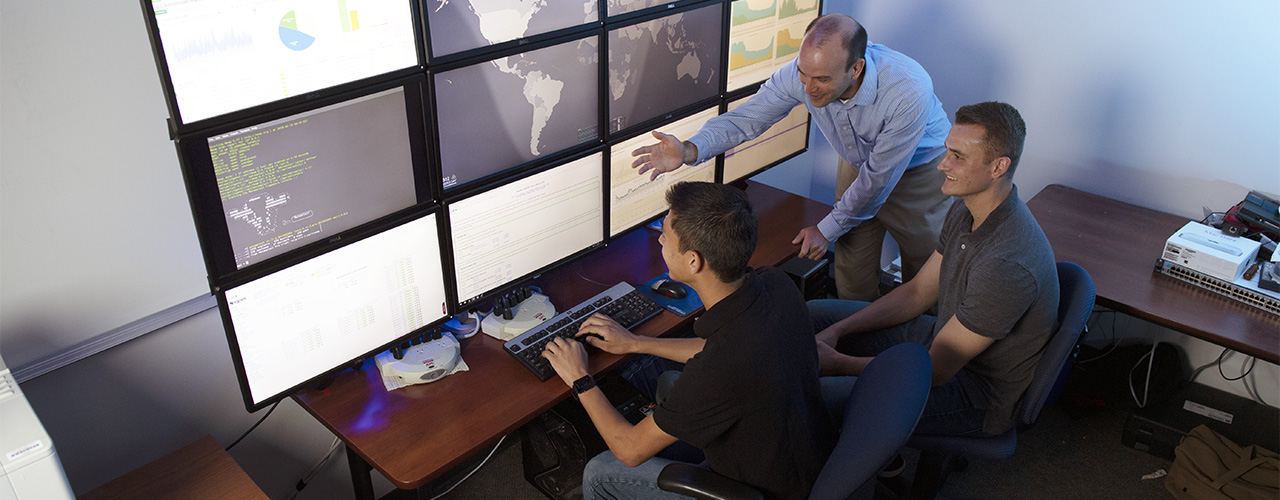by Hannah Fair, Student Public Relations Writer
Dr. Seth Hamman, associate professor of computer science and director for Cedarville’s Center for the Advancement of Cybersecurity, and Dr. Kenneth Hopkinson, professor of computer science at the Air Force Institute of Technology (AFIT), are featured curriculum authors for the National Security Agency's (NSA) National Cybersecurity Curriculum Program (NCCP).
In March 2017, NSA awarded 27 grants to develop curriculum for high-need segments of cybersecurity. Hopkinson was Hamman’s Ph.D. adviser at AFIT, and the two partnered together for the $100,000 grant that enabled Hamman to develop a portion of his Ph.D. research into a publicly available cyber curriculum module.
The NSA funded the NCCP grants because they recognized the shortage of quality curriculum available to professors for teaching cybersecurity – an academic discipline that is still in its infancy. Because the NCCP is government sponsored, all of the curriculum developed under the program is free and accessible to educators everywhere at www.clark.center.
“By funding and publishing this curriculum, the NSA is helping to close the cybersecurity skills gap,” said Hamman. “The content we developed for this grant has been in use at Cedarville for several years, and the students have loved it. It has been a joy developing it into something that educators around the world can use.”
— Seth Hamman
Hamman’s curriculum module provides a basic introduction to adversarial thinking, game theory, and behavioral game theory. The goal is to help develop cybersecurity students’ abilities to anticipate the strategic actions of cyber adversaries, including where, when and how they might attack, and their tactics for evading detection.
Hamman says the larger goal of the module is to produce enduring strategic-mindedness in students who may otherwise tend to default into a checklist mentality. Hamman points out that the human adversary is central to cybersecurity, and therefore, adversarial thinking is the hallmark of the discipline.
Hamman’s stand-alone, self-contained module does not require any knowledge prerequisites and contains three approximately one-hour lessons. Professors receive a syllabus, slides with extensive instructor notes, custom-made videos designed to provoke students’ interest and assessment materials.
The module can be incorporated into virtually any university-level course. Hamman validated the module by performing a rigorous classroom experiment at Cedarville and has authored two peer-reviewed journal articles about the content.
“By contributing to this NSA program, Cedarville is helping to shape the future of cybersecurity education,” Hamman said. “To be involved in such an important field at such a formative time is really exciting.”
Located in southwest Ohio, Cedarville University is an accredited, Christ-centered, Baptist institution with an enrollment of 4,193 undergraduate, graduate, and online students in more than 150 areas of study. Founded in 1887, Cedarville is recognized nationally for its authentic Christian community, rigorous academic programs, strong graduation and retention rates, accredited professional and health science offerings, and leading student satisfaction ratings. For more information about the University, visit www.cedarville.edu.


















